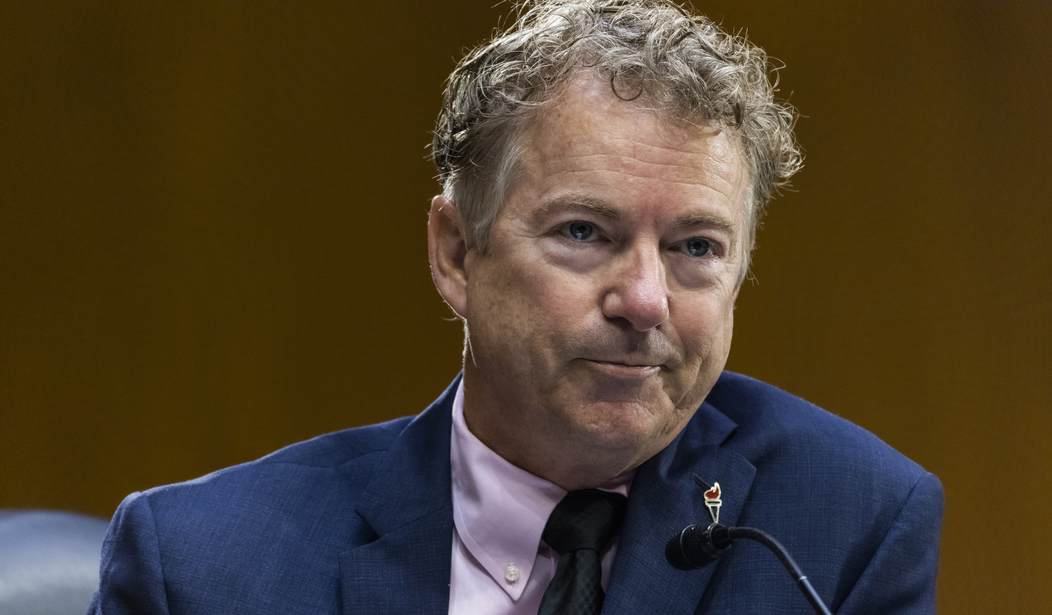On May 12th, the United States Senate sought to unanimously pass a $40-billion-dollar aid package that would have funded Ukraine because of their ongoing war with the country of war. Unfortunately, the House of Representatives had already resoundingly passed the bill, with only 57 Republicans voting against it. The vote was met with extreme criticism by most conservatives, as the senate prepared the legislation before many legislative offices were even able to understand exactly where the funding was coming from. It seemed that Minority Leader Mitch McConnell and Majority Leader Chuck Schumer thought this would be an issue both parties could unanimously consent to without opposition. Luckily, there was the lone Republican from Kentucky who did just that.
Fiscal Hawk and Kentucky Senator Rand Paul stood in opposition to the unanimous vote, which would force a vote on the aid bill next week where all senators would be on the record for if they would vote aye or nay. Paul’s main reasoning was the concern of both the current state of the U.S. economy and the lack of oversight to review the distribution of funds. The Senator said, “I’m not allowing a speedy passage of the bill without having something fiscally responsible in the bill.. with a $30 trillion debt, America can’t afford to be the world’s policeman.” The Huffington Post reported that McConnell could not even look at Paul as he stormed out of the Senate chamber, but it is to be expected after a lack of explanation or discussion concerning the bill in the first place.
Paul represents somewhat of a new policy issue on the conservative right in anti-interventionism, which he has always stood for. Taking similar steps as his father took years ago when he served in Congress, Rand exemplified what it means to be a liberty-centered conservative in some of the most trying economic times in history. With inflation at the highest rate in decades, warhawks clamoring to go to war with Russia, and virtue signaling grandstanders shifting their focus to Ukraine from COVID, it seems as follows: if conservatives have finally had just about enough.
These actions also tell the tale of the unfortunate shift in the American left from an idea of anti-war positions to automatically supporting any form of throwing money at a problem just so long as the opponent of the bill is Russia. For years and years, the public always viewed the Democratic Party as, at least more than the GOP, against war and interventionist mindsets. However, since President Trump was falsely accused back in 2015 of collaborating with Russian oligarchs and President Vladimir Putin to steal the 2016 election, it seems as if Democrats surefire believe that Congress should take any effort against the nuclear superpower at all cost. These issues are rampant in both parties as well. For some ungodly reason, we have never seen the moral obligation to stand with another country’s struggles as we have seen members of both parties do with Ukraine. There have been photos of Democrats and Republicans wearing Ukrainian flags, putting flags in their biographies on Twitter, and doing nothing short of worshipping at the feet of Ukrainian President Volodymyr Zelenskyy.
Recommended
However, the reasons behind this should be evident if you look into the money these congressional members are making for investments into the military-industrial complex, which controls most of the foreign policy decisions in Washington. Multiple Senate and U.S. House members are allocating their funds and voting on behalf of their biggest stock trades for companies such as Raytheon, Honeywell, Boeing, Lockheed Martin, and other companies that benefit from the makings of military technologies and products. The saddest factor is that there is nearly an equal number of Republicans and Democrats who solely benefit off the backs of American taxpayers to earn a profit based upon how they vote in the chamber. Legislators such as Mitt Romney, John Boozman, Sheldon Whitehouse, Gary Peters, Fred Upton, and Steve Cohen have all made investments, so when the United States goes to war or sends funds to Ukraine to buy more products of war, they make a profit.
Neo-conservatism knows no party. Instead, they are a uniparty that controls most congressional foreign policy positions and for all of the wrong reasons. Legislators who profit from sending the American military and defense spending overseas deserve no benefit of the doubt to earn a quick buck. Paul stood up against this rule from the establishment side of both parties and represented a majority of modern conservative opposition to that idea.

























Join the conversation as a VIP Member